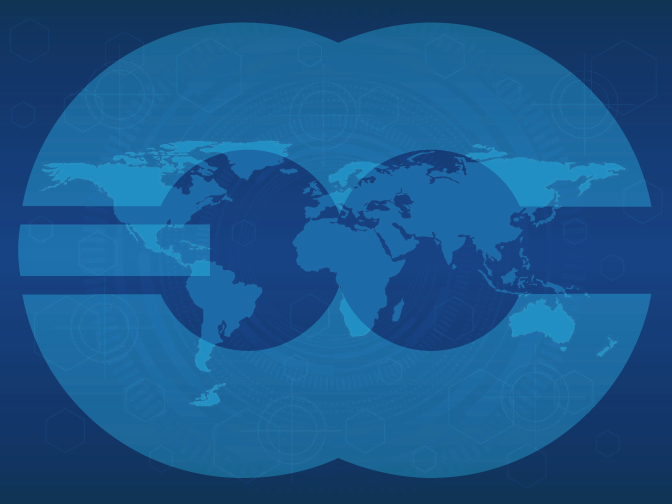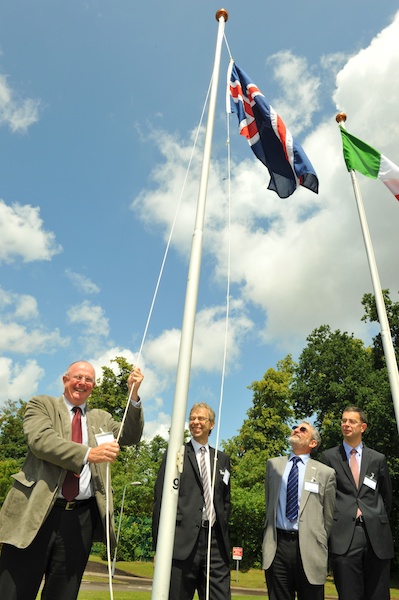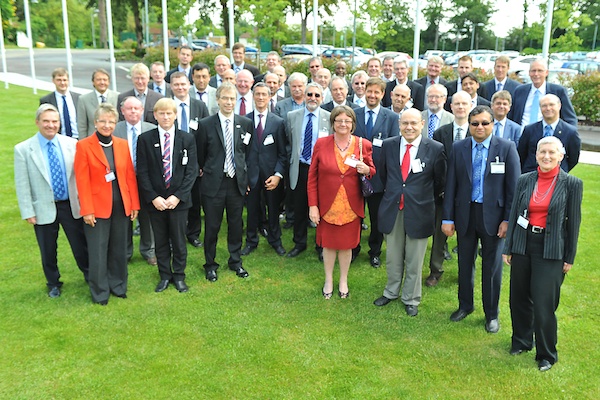

Under the chairmanship of its President, Francois Jacq (France), the Council held its 75th session on 16 and 17 June 2011. This session was the first chaired by Mr Jacq, the last for the outgoing Director-General, Dominique Marbouty, and the first for Iceland participating as a Member State.
During the first day of the session, the representative from Iceland, Arni Snorrason, raised the Icelandic flag.

(Arni Snorrason, Alan Thorpe (Director-General-elect), Dominique Marbouty, Francois Jacq)
The Council congratulated the Centre on the main achievements since its last session in December 2010, noting in particular that:
- A new cycle of the forecasting system had been implemented on 18 May 2011, introducing meteorological and technical changes.
- Several important projects, in particular the ERA-CLIM project funded by the European Union, were developing as expected.
The following main decisions were taken unanimously at this session:
Member States agreed to vote by correspondence in August 2011 on the accession of the Republic of Croatia to the ECMWF Convention.
The Council authorised the Director-General to start negotiations with the Republic of Moldova on becoming an ECMWF Co-operating State.
A resolution on the Centre’s contributions to GMES was adopted requesting the European Union to prepare a framework for the use of the Centre’s facilities in the operational phase from 2014 onwards and extending the already agreed data policy to cover the GMES preoperational phase.
The Council adopted the ECMWF Strategy for the period 2011-2020. The principal goal of ECMWF in the next ten years is to improve its global, medium-range weather forecasting systems, at the current rapid rates, in order to:
- Provide Member States’ National Meteorological Services with reliable forecasts of severe weather across the medium-range.
- Meet Member States’ requirements for high quality near-surface weather forecast products such as precipitation, wind and temperature.
Complementary goals are to:
- Improve the quality of monthly and seasonal–to-interannual forecasts.
- Support climate monitoring with state-of-the-art reanalyses of the Earth-system.
- Contribute towards the optimisation of the Global Observing System.
- Enhance support to Member States’ national forecasting activities by providing suitable boundary conditions for limited-area models.
- Deliver global analyses and forecasts of atmospheric composition.

